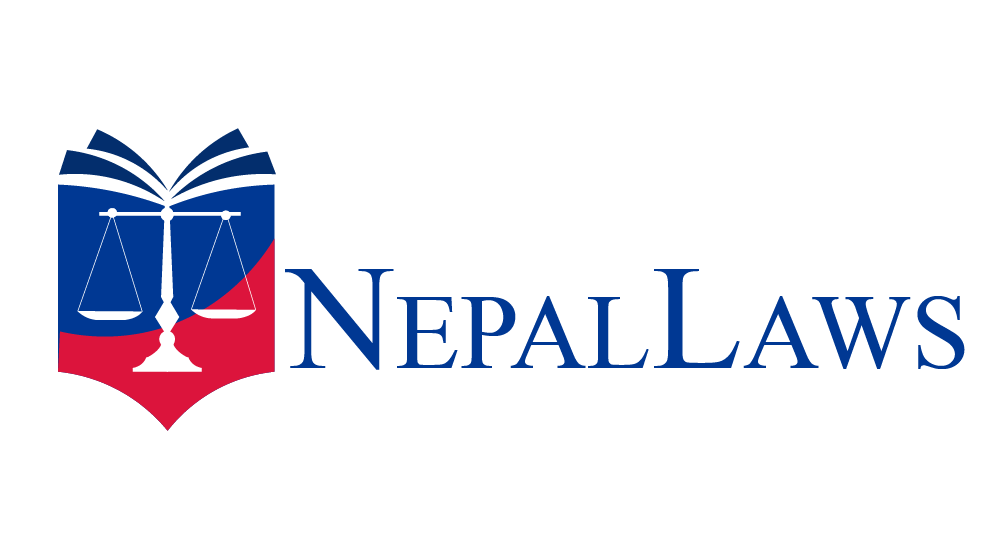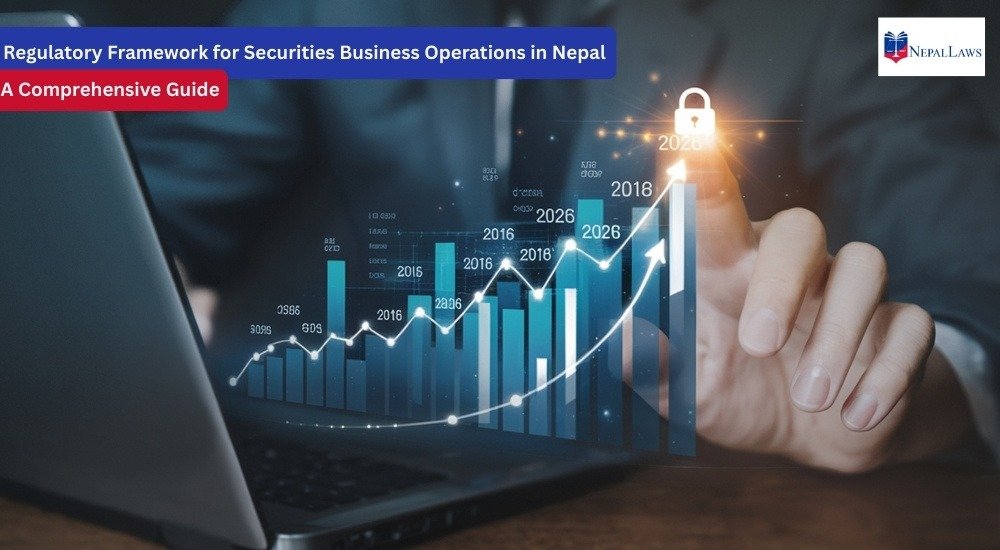In Nepal, businesses may need to change their structure over time as they grow or adapt to the market. One such change is the conversion of a private limited company to a public limited company. This shift often takes place when a company seeks to raise capital from the public, expand its shareholder base, or list its shares on the Nepal Stock Exchange (NEPSE).
This article outlines the legal procedure for converting a private company into a public company in Nepal, along with the key requirements, benefits, and challenges associated with the process.
What Is the Difference Between a Private Company and a Public Company?
Before diving into the conversation process, it is essential to understand the key differences between a private company and a public company:
| Aspect | Private Company | Public Company |
|---|---|---|
| Ownership | Owned by a small group of individuals, the number of shareholders is limited. | Owned by the public through shares, and the number of shareholders can be vast, with shares being traded on the stock exchange. |
| Capital Raising | Cannot raise capital from the public, only raise funds through private investments or loans. | Can raise capital by issuing shares to the general public through an Initial Public Offering (IPO) or other stock offerings. |
| Regulatory Requirements | Generally subject to fewer regulatory requirements than public companies. | Must comply with more stringent disclosure and governance standards. |
Legal Basis for Conversion of a Private Company into a Public Company
The conversion of a private company into a public company in Nepal is governed by Section 13 of the Companies Act, 2063.
In accordance with these Provisions, a private company can be converted into a public company in any of the following cases:
- When the general meeting passes a special resolution approving the conversion
- When one or more public companies own 25% or more shares of a private company
- When a private company itself holds 25% or more shares in a public company.
After passing a special resolution, the company must submit an application to the Office of the Company Registrar (OCR) within 30 days, along with the prescribed fee.
The OCR will review the application and, if all legal requirements are met, issue a conversion certificate within 60 days.
Once converted, the company will be treated as a public company, and all assets and liabilities of the former private company will automatically be transferred to the new public company.
Why Convert from Private Company to Public Company?
There are several reasons why a company may choose to convert from a private company to a public company:
- Capital Access – A public company can raise capital from the general public, which can fund expansion, research and development, and other long-term goals.
- Increased Credibility – Listing on a public exchange often enhances the company’s reputation and visibility, increasing its credibility with investors, creditors and customers.
- Employee Stock Options – A public company can offer stock options to its employees, which can be an attractive benefit.
- Exit Strategy for Investors – The public market provides an exit opportunity for early investors who wish to sell their shares.
Procedural to Convert a Private Company to a Public Company in Nepal
Converting a private company to a public company in Nepal involves several steps, primarily regulated under the Companies Act, 2063. Here is the typical procedure:
Board Approval and Shareholder Resolution
The first step in the conversion process is obtaining approval from the BOD and the shareholders of the company.
- A special resolution must be passed in a general meeting to approve the conversion. This resolution must be passed by at least 75% of the shareholders present at the meeting.
- The company must ensure that its Memorandum of Association (MOA) and Articles of Association (AOA) are amended to reflect its new status as a public company.
Amendment of Memorandum and Articles of Association
Once the resolution is passed, the Memorandum of Association (MOA) and Articles of Association (AOA) need to be amended to align with the requirements of a public company.
- MOA - The company's objectives and authorised capital may need to be revised to allow for the issuance of shares to the public.
- AOA - The rules governing the internal operations and management of the company, such as the appointment of directors, may need to be modified to comply with public company regulations.
Increase in Paid-Up Capital
For a company to qualify as a public company, it must meet the minimum paid-up capital requirements set by the Securities Board of Nepal (SEBON).
Generally, this amount is NPR 10 million or more, depending on the company’s business structure and the sector in which it operates.
The company may issue new shares to raise capital to meet the minimum requirement, or it may utilise retained earnings to increase its paid-up capital.
Filing with the Office of the Company Registrar
Once the necessary amendments are made, the company must file the following documents with the Office of the Company Registrar (OCR):
- Special resolution passed by the shareholders.
- Amended MOA and AOA reflect the change in company status.
- Increased paid-up capital details and evidence.
- Certificate of Incorporation as a public company.
The OCR will review the application and, if everything is in order, will issue a Certificate of Incorporation for the company as a public limited company.
Registration with the Securities Board of Nepal (SEBON)
To operate as a public company, the company must also register with SEBON. This registration is required before the company can issue shares to the public or list its shares on a stock exchange.
SEBON will evaluate the company’s financial health, governance structure, and disclosure practices to ensure compliance with public company regulations.
Listing on the Nepal Stock Exchange (NEPSE)
Once registered with SEBON, the company can apply for listing on the Nepal Stock Exchange (NEPSE).
This step is not mandatory for all public companies, but it is a crucial step for those seeking to offer shares to the public.
The company must fulfil additional listing requirements set by NEPSE, including submitting audited financial statements, appointing a stockbroker, and meeting other regulatory requirements.

Key Requirements for Public Companies in Nepal
After the conversion, public companies in Nepal must comply with various additional requirements that govern their operations. These include:
Disclosure Requirements
Public companies are required to disclose detailed financial information, including quarterly and annual financial statements, to the public and regulatory bodies like SEBON and NEPSE.
Corporate Governance
Public companies must adhere to stricter governance standards, including the composition of the board of directors, independent audits, and transparent reporting.
Shareholder Meetings
Public companies are required to hold regular Annual General Meetings (AGMs) and Extraordinary General Meetings (EGMs) to discuss major decisions, financial performance, and shareholder concerns.
Dividend Policy
Public companies must develop a clear dividend policy to manage the distribution of profits among shareholders.
Documents and Information Required for the Company Conversion Process
To convert a private company into a public company in Nepal, the following documents and information are typically required:
- Special Resolution – A resolution passed by the general meeting approving the conversion from a private to a public company.
- Amended Memorandum of Association (MOA) – The MOA needs to be updated to reflect the new status of the company as a public entity.
- Amended Articles of Association (AOA) – The AOA must be modified to comply with the regulations for public companies.
- Audited Financial Statements (Past Three Years) – Financial statements from the last three years to provide a clear financial picture of the company.
- Due Diligence Report – A report on the company’s operations and compliance, ensuring everything is in order before the conversion.
- Board Resolution Authorising Conversion – A resolution passed by the Board of Directors approving the conversion.
- Draft Prospectus for Public Offering – A draft of the document that will be issued when the company offers shares to the public (if applicable).
- Company Registration Certificate – A copy of the company’s current registration certificate as a private company.
- PAN/VAT Registration Certificates – Proof of the company’s tax registrations, including PAN (Permanent Account Number) and VAT (Value Added Tax) certificates.
- List of Existing Shareholders with Shareholding Details – A detailed list of the company’s current shareholders and their respective shareholdings.
- Details of Company Directors and Key Management Personnel – Information about the directors and key executives who manage the company.
- Compliance Certificates from Regulatory Bodies – Proof of compliance with regulatory authorities, such as SEBON or NEPSE (if applicable).
- Valuation Report on Company Assets – A professional valuation of the company’s assets to determine their market value.
- Bank Statements and Details of Company Accounts – Recent bank statements and account details for financial transparency.
Challenges of Converting a Private Company to a Public Company
In Nepal, converting a private company to a public company is not easy, there are challenges to be borne by the companies. The basic challenges are:
Increased Regulation and Scrutiny
Public companies face more regulatory scrutiny and must adhere to strict compliance standards. This can be both time-consuming and costly.
Dilution of Ownership
Issuing shares to the public results in dilution of the original owners’ control over the company, which may impact decision-making and management.
Costs of Conversion
The process of converting a private company into a public one entails significant expenses, including legal fees, accounting costs, and the costs associated with complying with regulatory requirements.
Timeline for Completion of the Conversion Process
The conversion of a private company to a public company in Nepal typically takes 6 to 12 months. This includes 1-2 months for document preparation and shareholder approval, 2-3 months for OCR review, 2-3 months for SEBON’s prospectus approval, 1-2 months for the IPO process, and 1-2 months for post-IPO procedures and stock exchange listing.
The timeline varies depending on the company’s readiness and external factors.
Conclusion
Converting a private company to a public one in Nepal opens up opportunities for growth, capital access, and increased credibility.
The process, regulated by the Companies Act 2063, involves steps like shareholder approval, amending company documents, increasing paid-up capital, and registration with SEBON and NEPSE.
While it offers benefits such as raising funds and enhancing visibility, it also comes with challenges, including regulatory compliance, ownership dilution, and significant costs.
The process typically takes 6 to 12 months, but the advantages of becoming a public company make it a worthwhile endeavour for growth-oriented businesses.





